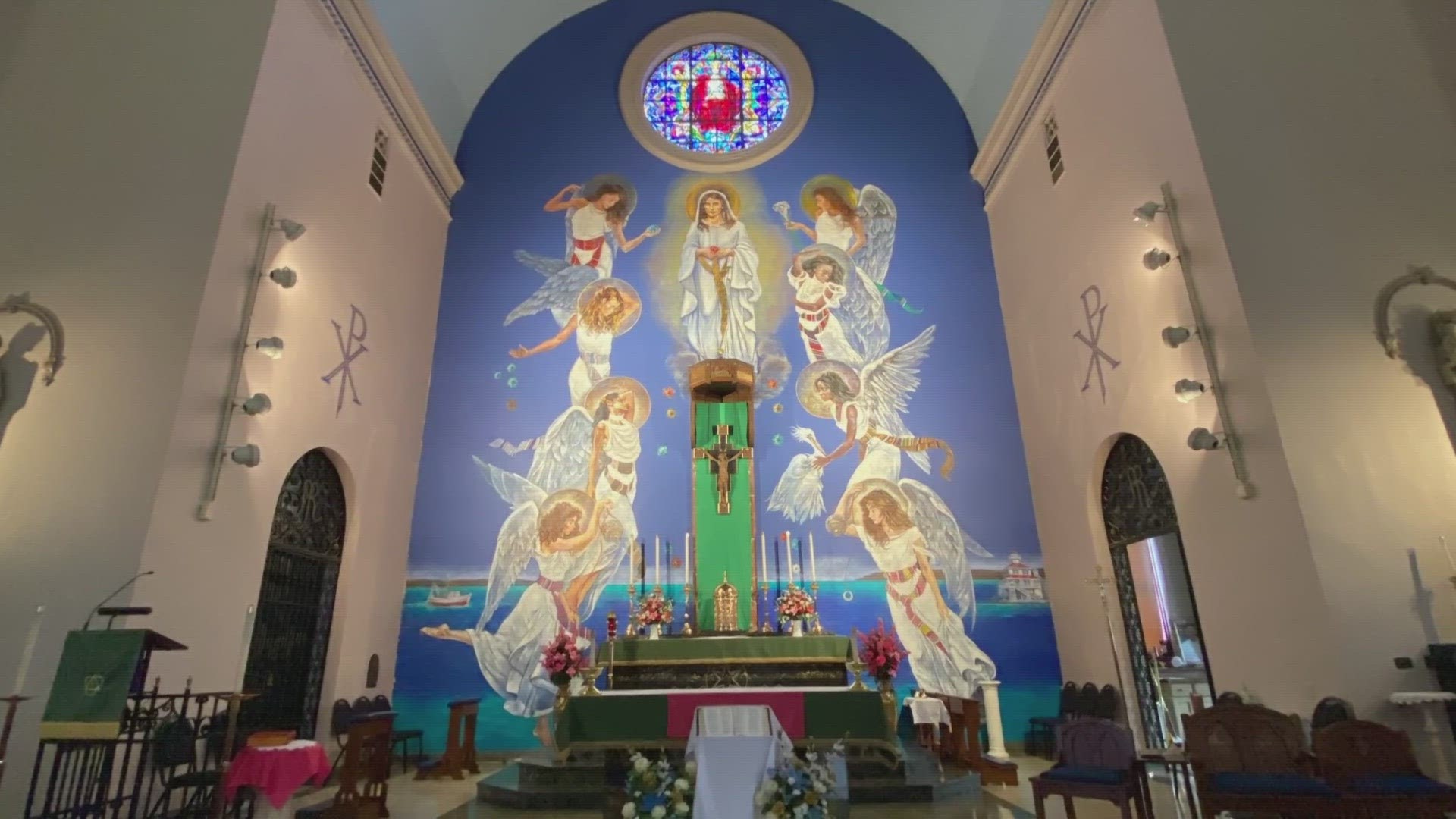NEW ORLEANS — Among the most populous Catholic dioceses in the U.S., the Archdiocese of New Orleans has the largest concentration of Black parishioners at 13 percent, according to a 2021 survey by the U.S. Conference of Catholic Bishops.
But majority-Black parishes are overrepresented in the New Orleans archdiocese’s new parish consolidation plan, announced at Masses this weekend. There are five majority-Black parishes among the 13 scheduled to merge or dissolve in July 2024.
Leaders at those churches expressed concern that they were feeling a disproportionate impact because of historic racial inequities, starting with the segregated parishes of 60 years ago, ongoing economic inequality and other factors that have led a much higher percentage of Black Catholics to leave the faith, according to the Pew Research Center.
The church’s consolidation plan will allow the restructuring archdiocese to sell buildings and other assets to pay its uninsured bankruptcy debt, which has grown exponentially over the last three years behind 450-500 clergy sex-abuse claims.
Archbishop Gregory Aymond said the move is the result of several factors, including skyrocketing property insurance rates, the financial effects of the pandemic and repeated storms. He acknowledged it’s painful but was announced after a careful, yearlong “discernment period.”
Aymond said the difficult decisions on which parishes to merge and which were fully sustainable were based on the work of those committees.
“Pastors, lay parish leadership and parishioners were invited into dialogue – true dialogue – to determine how to address the challenges facing them,” Aymond said in a video recording posted on the archdiocese’s website.
But many of the city’s Black Catholics told WWL-TV they weren’t properly heard during that process.
“We can continue, we can sustain,” said Walter Wright, a lay leader at Our Lady Star of the Sea, a 112-year-old church in the St. Roch neighborhood of New Orleans. “We can keep our doors open. We can keep the roof from leaking, the lights on. Don't stop us.”
Wright served on the Our Lady Star of the Sea parish sustainability committee that met with archdiocesan officials over the last year and put together an assessment of the parish’s strengths and weaknesses.
The archdiocese said it analyzed five markers of a church’s viability to determine which parishes would merge: spiritual, pastoral, financial, physical plant and demographics. The report produced by Star of the Sea’s committee focused on recent, self-financed building improvements and the influx of younger families and growing median incomes in the St. Roch neighborhood.
They thought they had put together a strong case to stay open. They were devastated to learn they would have to merge with St. Mary of the Angels, a parish about a mile away in the Florida Area.
“Support has not been given in a timely or effective manner to ensure that all churches have the equal resources they need to support the communities that they are in,” said Angélique Roché, who served on the committee and gathered testimonials from fellow parishioners for the committee report.
Three more majority-Black parishes in the Gentilly section of New Orleans – St. Gabriel the Archangel, Transfiguration of the Lord and St. James Major – are also scheduled to merge into a single, new parish.
“I think it's a vicious cycle where Black Catholics in this city is just caught up in it,” said St. Gabriel parishioner Howard Rodgers. “Yeah, we feel targeted. Why? I mean, we’re all Catholics.”
Rodgers felt like the results of the sustainability committee assessments were predetermined.
“The people at my parish felt hurt. They felt disgusted because we put all this work into this plan,” he said. “But unfortunately, we all know what the outcome is going to be.”
The archdiocese rejected the idea that race played any role in its consolidation plan.
"The rationale and explanations for our decisions were in our press release,” the archdiocese said in a statement. “To suggest that race played a factor in our determinations is without credibility."
► Get breaking news from your neighborhood delivered directly to you by downloading the new FREE WWL-TV News app now in the IOS App Store or Google Play.

